01/13/2012: Check out the update on this story here.
Despite pledges to clamp down on unethical trade in wildlife products, pangolin flesh and scales are offered for sale on a well-known website.
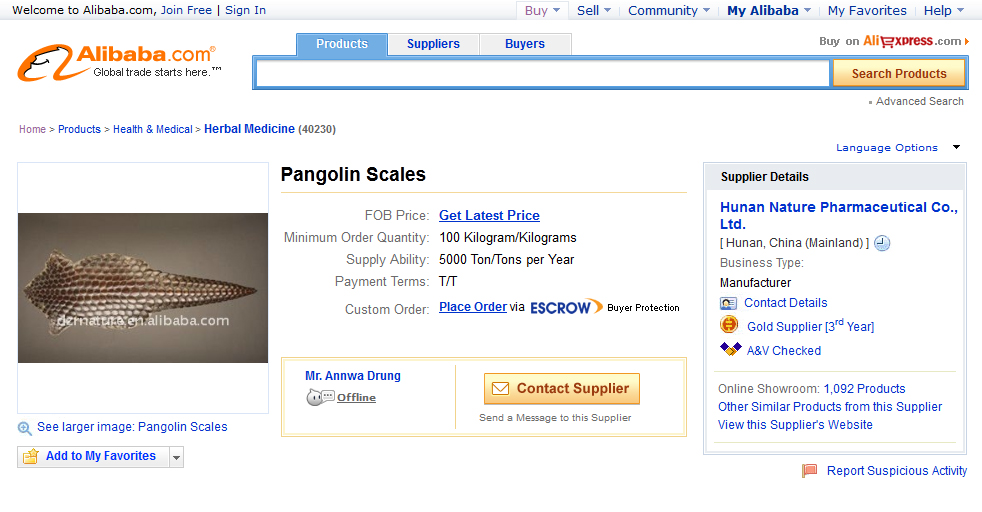
As of this writing, the above could be found here: http://www.alibaba.com/product-gs/499471942/Pangolin_Scales.html
A search for the term “pangolin” on a major eCommerce website yields some shocking and appalling results: The endangered animals’ flesh and scales are openly listed for sale.
And if that’s not shocking enough, who owns the website may be even more disturbing.
Pangolin flesh and scales for sale on Alibaba.com
Pangolin flesh and scales have been found listed for sale on Alibaba.com.
Such transactions are illegal without the required permits issued by the Convention on International Trade in Endangered Species (CITES).
Additionally, if the body parts offered for sale come from an Asian pangolin species, selling these ‘products’ anywhere outside the country from which they were initially sourced from the wild is also illegal, due to a zero-export quota imposed for all four species living in East and Southeast Asia.
The findings are extremely concerning, given that an estimated 40,000-60,000 pangolins were poached in 2011 to supply the black market demand for their flesh, skin, scales, fetuses, organs, and blood in the Far East – primarily from China and Vietnam.
As of this writing, the following could be found here: http://www.alibaba.com/product-free/123770943/pangolin_meat.html
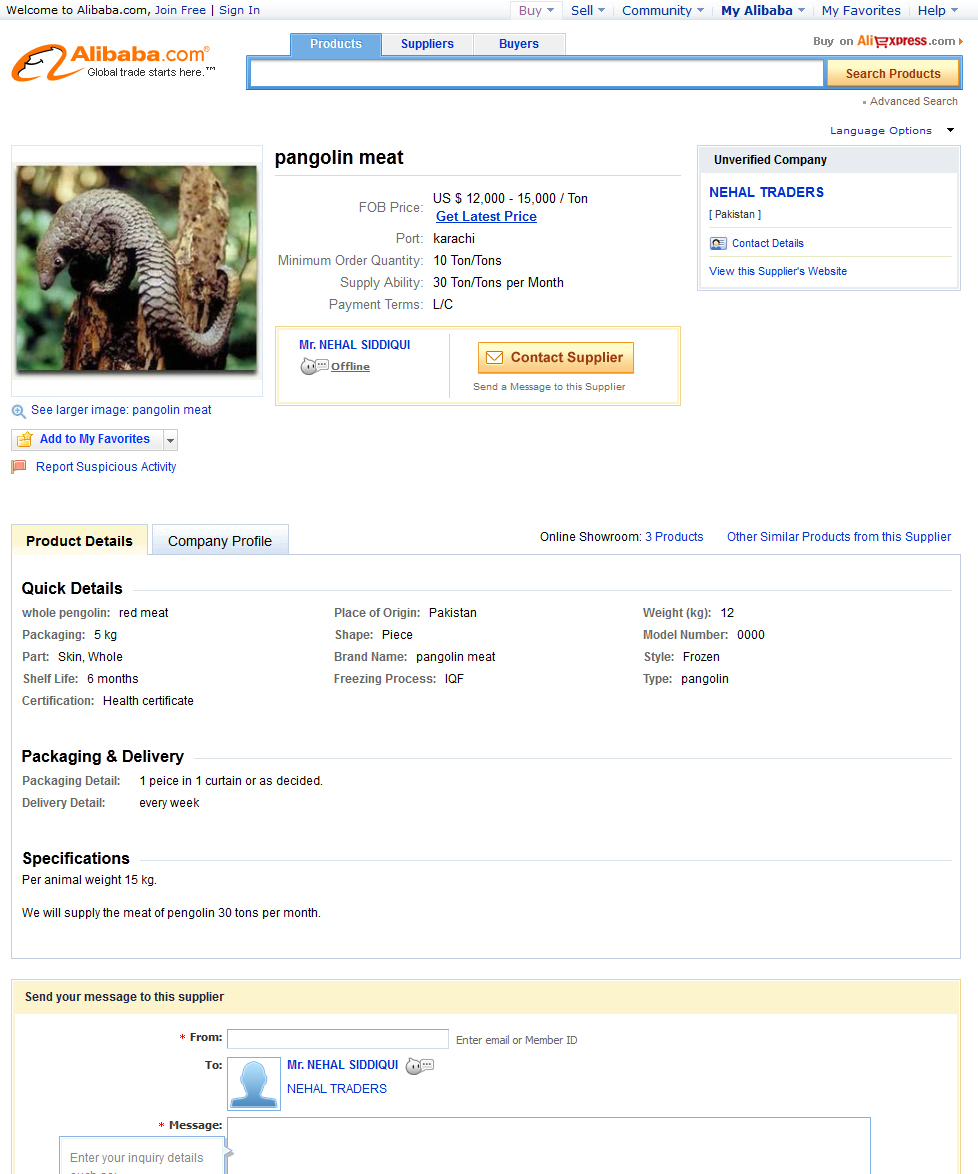
Cause for concern?
Shockingly, Founder, Chairman, and CEO of Alibaba.com, Jack Ma, sits on the board of major international conservation group, The Nature Conservancy (TNC) – along with many other representatives of the corporate world.
Ma, who TNC champions as “one of China’s most influential business leaders” and Time Magazine named one of 100 people who “most affect our world” in 2009, joined the organization’s Board of Trustees in 2009 and then its global Board of Directors the following year.
TNC has repeatedly flaunted Ma’s ‘commitment to social responsibility’, which they say includes clamping down on unsustainable and unethical trade in wildlife products on Alibaba.com and its sister site Taobao.com.
(Back in 2003, the Washington Post ran a three-piece article exposing TNC’s suspicious backdoor dealings with their corporate board members. TNC explains that, despite making some mistakes, they are in a unique position to lead a frontier that uses corporate leverage for conservation.)
Not the first time Alibaba.com has caught heat over wildlife trade
To some, this news may come as no surprise, as Alibaba has been repeatedly criticized for allowing the sale of suspicious wildlife and other animal products in the past.
In 2010, the company pledged its ‘commitment to social responsibility’ by banning the sale of bear bile products and the fur and flesh of cats and dogs on its site, as well as on Taobao.com, in response to numerous campaigns from wildlife conservation and animal rights groups.
The move followed the business’s 2009 ban on the sale of shark fins on their sites, which also seems to have stemmed intensifying heat from various marine and wildlife conservation groups.
Unfortunately, it seems this ‘commitment to social responsibility’ is more reactive than proactive.
Furthermore, it seems this pledge is also more futile than beneficial, as the mercury-riddled flesh of threatened sharks – such as threshers and blues – continues to be sold on Alibaba.
You can also find the bile of unnamed animals (potentially even that of bears) on the website today, in addition to bile from porcupines, cobras, pigs, cows, oxen, and more.
In fact, the list of illegal and questionable wildlife products (many of which used for traditional Chinese medicines) that can be found on Alibaba is seemingly endless and includes dried seahorses, tortoises, sea cucumbers, shark teeth, snake venom (falsely sold as treatment for AIDS), and the flesh of crocodiles, turtles, and a stream of other animals.
As of this writing, the following could be found here: http://www.alibaba.com/product-free/101405506/Frozen_Meat.html
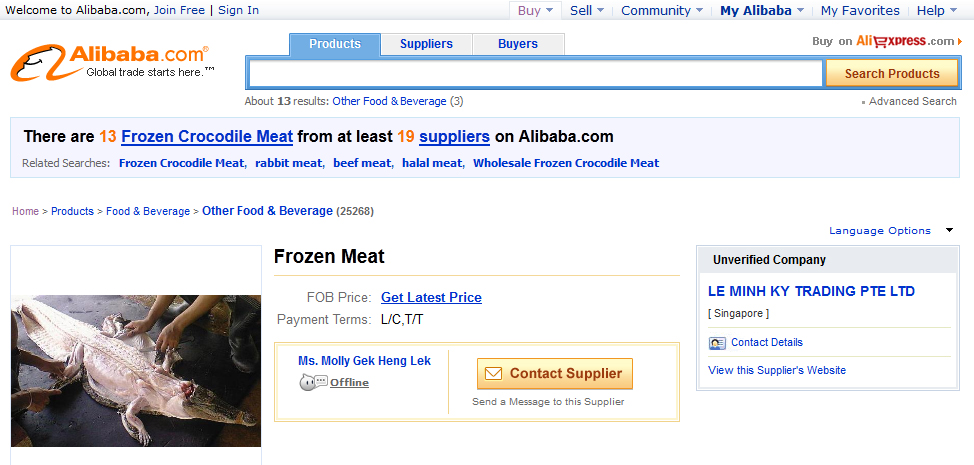
Even the rare banded pipehorses — a relative of the leafy and weedy seadragons endemic to Australia and New Zealand — have been found listed on the site, a species protected from collection and export by Australian national legislation.
Despite this legal protection, you can clearly see from the screenshot below that the seller falsely claims the origin of the creatures for sale as being Vietnam, which suggests the animals have already been exported from their native waters.
As of this writing, the following could be found here: http://www.alibaba.com/product-free/110183501/Dried_Sea_Dragon_Seahorse_Sea_Woths.html
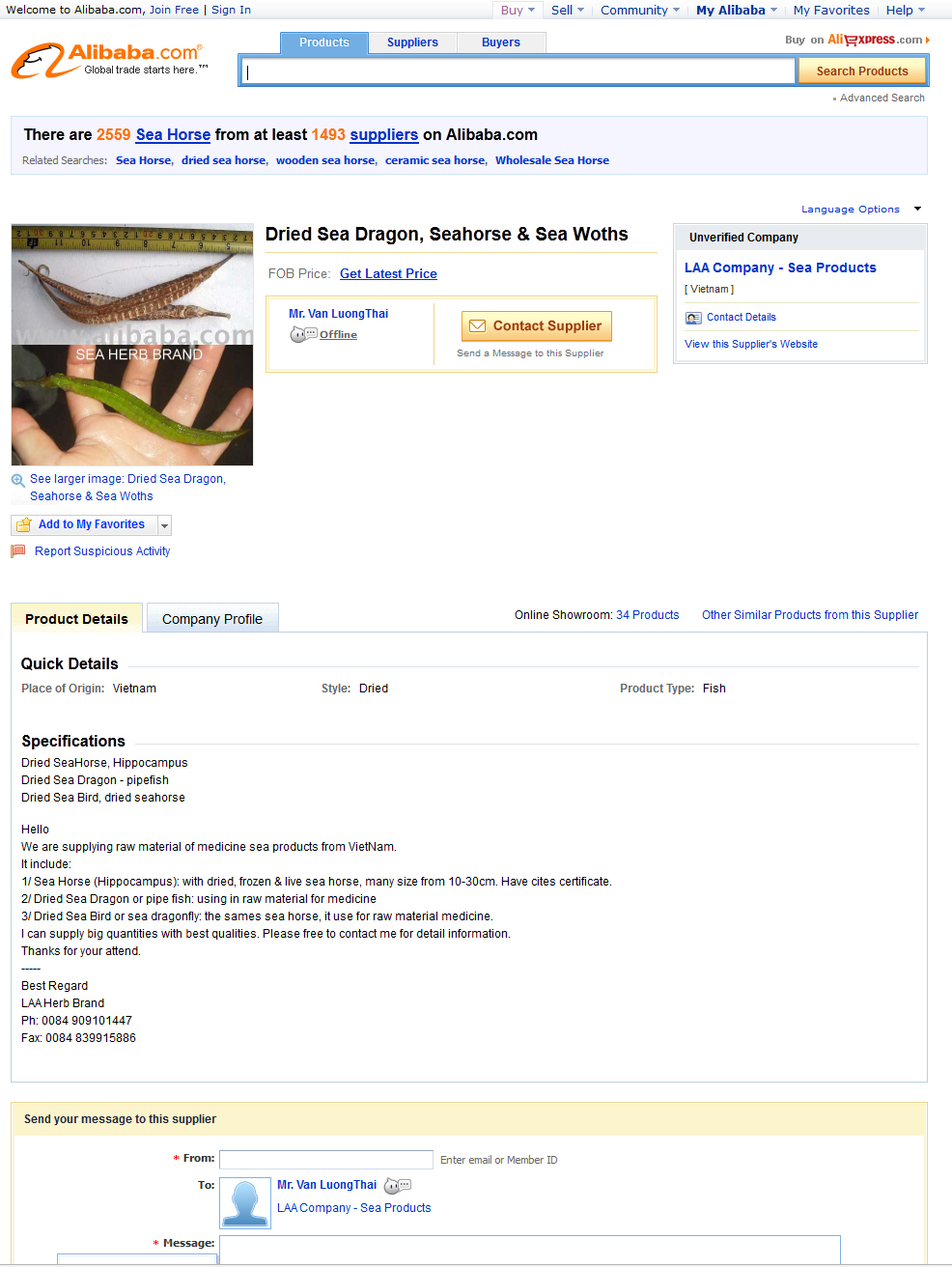
Online transactions in illegal and unsustainable wildlife trade is an increasing concern for law enforcement officials and conservationists alike.
Recently, LA Weekly reported that a U.S. Attorney’s Office filed federal charges against twelve people for selling endangered wildlife products — including sea turtle skin, an elephant’s foot, and the furs of a tiger, polar bear, leopard, and a bear — on popular, globally-used websites like Craigslist and eBay.
Insatiable demand for pangolins
These animals are in high demand in East and Southeast Asia, predominantly in China and Vietnam.
There, the flesh of adults and fetuses are consumed as delicacies and their scales are used to make traditional medicines.
According to wildlife trade monitoring network, TRAFFIC, pangolins are the most commonly encountered mammals in the illegal wildlife trade in Southeast Asia.
Pangolins are not medicine
Like other animal-based traditional Chinese medicines, pangolins’ body parts and scales are superstitiously used as somewhat of a “cure-all” remedy for things like reducing swelling, improving liver function, weight loss, stimulating blood circulation, and enhancing lactation in breast-feeding women.
Some also believe consuming the flesh nourishes the kidneys.
There is no scientific evidence to back any of the medicinal claims made about pangolin body parts.
In fact, rhino horn and pangolin scales, much like our own hair and nails, are chiefly composed of keratin.
Scientific studies have repeatedly shown rhino horn to be void of any curative properties.
Read more about the illegal pangolin trade here.
Author: Sarah Pappin. Read more about Sarah here.
Images via Alibaba.com



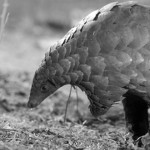
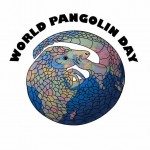
![Baby Pangolin Sticks Out His Tongue [Video]](https://www.pangolins.org/wp-content/uploads/2012/02/BabyCapePangolinTongue-150x150.jpg)
Comments are closed.